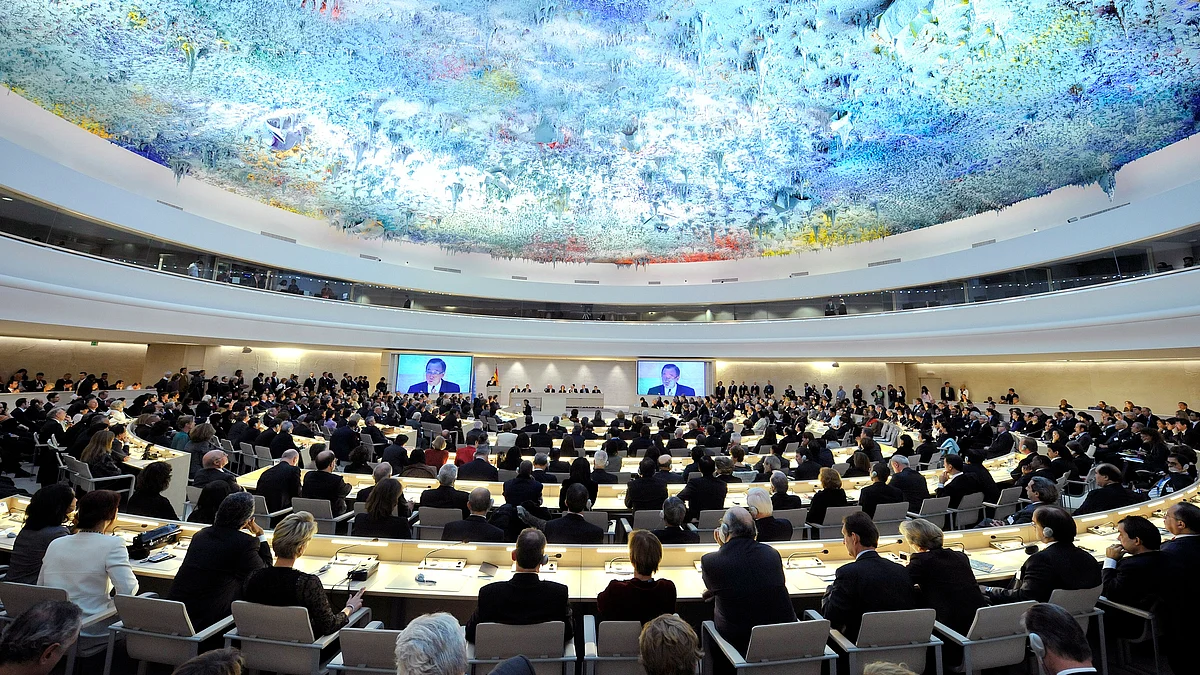All eyes on UN review of India’s human rights record
India’s human rights records will be scrutinised by the Universal Periodic Review (UPR) Working Group appointed by the United Nations Human Rights Council on November 10

India’s human rights records – the nation's performance on ensuring civil, political and economic rights to its citizens – will be scrutinised by the Universal Periodic Review (UPR) Working Group appointed by the United Nations Human Rights Council on Thursday, November 10.
The UN established this peer-review process in 2006 and India is to be evaluated after 5 years, the last time being 2017.
The UPR group includes other member states of the UNHRC and this evaluation forms part of a periodic process within which member States are questioned on human rights subjects, spanning across women’s rights, minority rights, hate speech, arrests and deaths in police custody.
The UPR Working Group consists of 47 member states and is moderated by a group of three countries known as the Troika. For India, the Troika is Nepal, Sudan and the Netherlands this year.
A statement released by the Ministry of External Affairs said that Tushar Mehta, Solicitor General of India, will be leading the Indian delegation for this review.
“India has been engaged constructively with the members of the UNHRC and other fellow UN member States to promote and protect human rights globally. We have laid emphasis on dialogue, engagement and cooperation among various stakeholders. We have underlined the primacy of States in fulfilling their human rights obligations. We have endeavoured to build consensus in the council on various issues on its Agenda and we have participated in deliberations in the council in a constructive manner,” read the statement published on Wednesday.
It also highlighted that UPR is a “unique” initiative that India “fully supports”.
The global community has placed India under considerable scrutiny over the past five years. Its questionable treatment of journalists and activists, accumulation of political prisoners, violation of press freedom, the impunity of military personnel under the Armed Forces Special Powers Act (AFSPA), crimes against women, the enactment of the Citizenship Amendment Act (CAA), and custodial torture etc have not gone down well with it.
As a part of “advance questions” submitted to the Troika, Belgium has urged India to revoke the CAA as it is “anti-minority”, while the United States has flagged the misuse of the sedition law as an attempt to curb free speech, the recurring internet shut-downs, and the Hijab ban issue in Karnataka.
“A law in one Indian state infringes on wearing religious garb in educational institutions. In addition, we are concerned about acts that intimidate religious and ethnic minority communities, such as hate speech and the targeting of their homes and businesses. What steps are being taken by the government to protect members of religious minority groups from discrimination?” read one of the US advance questions.
As a part of the process, the Troika and the rest of the working group can question India as well make recommendations on the nation’s human rights situation.
The sole outcome of the review process, however, is the recommendation which the subject nation can either “accept” or “note” – the latter indicates the nation’s unwillingness to implement said recommendation.
During the last review process, India was given 250 recommendations, out of which 152 were “accepted”, while 98 were “noted”.
Several critics have stated that this review process, although essential, remains inconsequential for a nation like India which regularly flouts human rights – there is a visible disparity between India’s response during the review process and its consequent domestic policy and legislative decisions.
“Many of the limitations of the UPR process are visible in India’s engagement with the mechanism. The Indian government routinely ignores recommendations that do not align with State ideology. It accepts very few recommendations relating to civil and political rights, or on any sensitive or controversial issue,” reads a report published by the National Law University, Delhi.
The report also states that India accepts the “easy” recommendations and “notes” the pressing one while failing to implement either with immediacy.
Meanwhile, Aakar Patel, chair of board of Amnesty International India has strongly urged the “UN Member States to engage in meaningful discussions with India, including by following up on their past recommendations and offering concrete recommendations to improve respect for human rights in the country.”
“India’s fourth UPR arrives at a time when human rights and critical institutions, independent media houses and civil society are facing systematic attacks in the country. This assessment presents a crucial opportunity for UN Member States to peer review India’s human rights records and to hold the country accountable for its abuses and violations,” he said.
Follow us on: Facebook, Twitter, Google News, Instagram
Join our official telegram channel (@nationalherald) and stay updated with the latest headlines